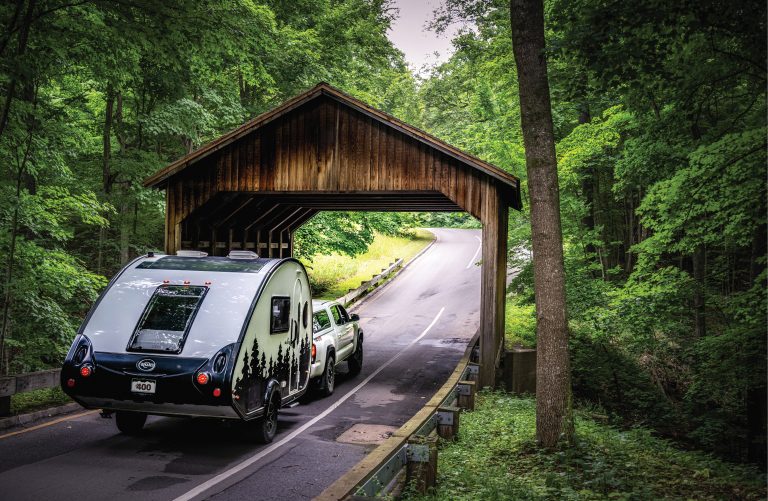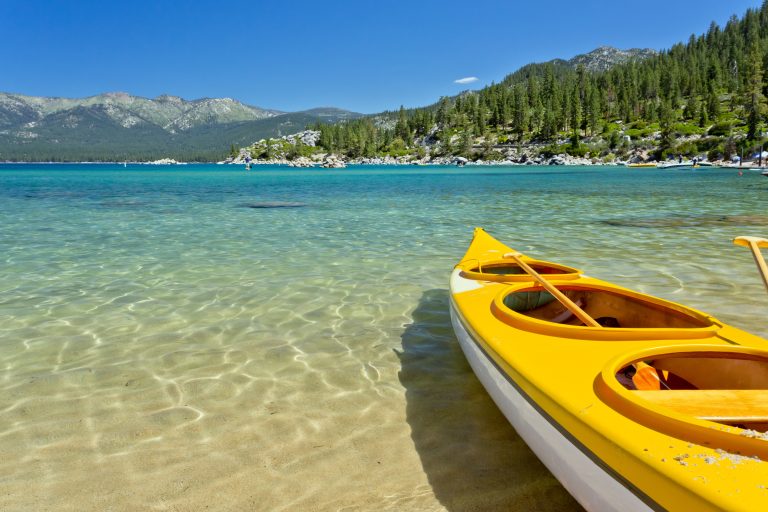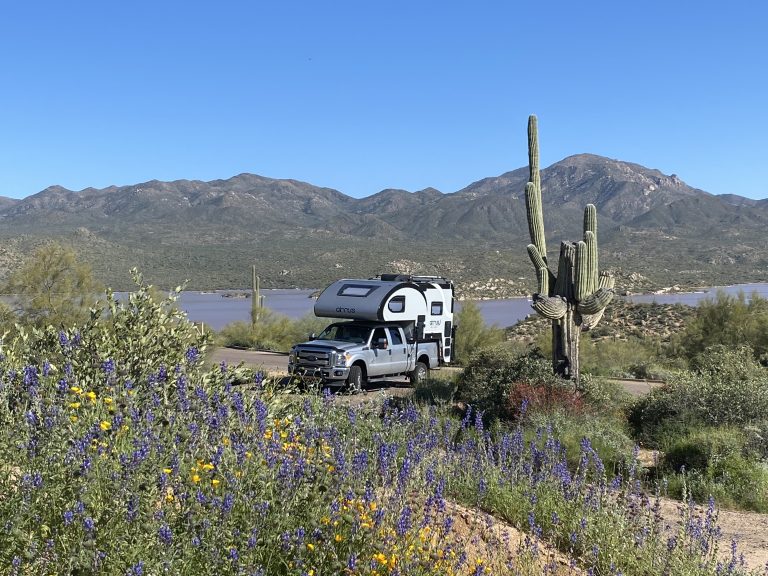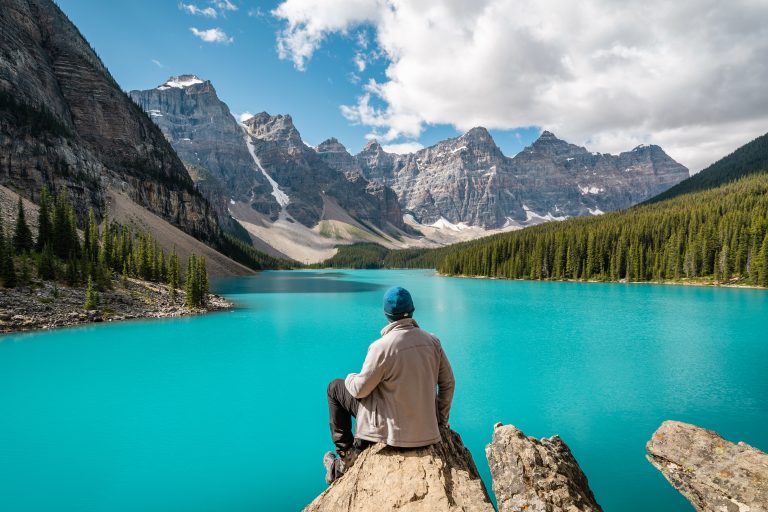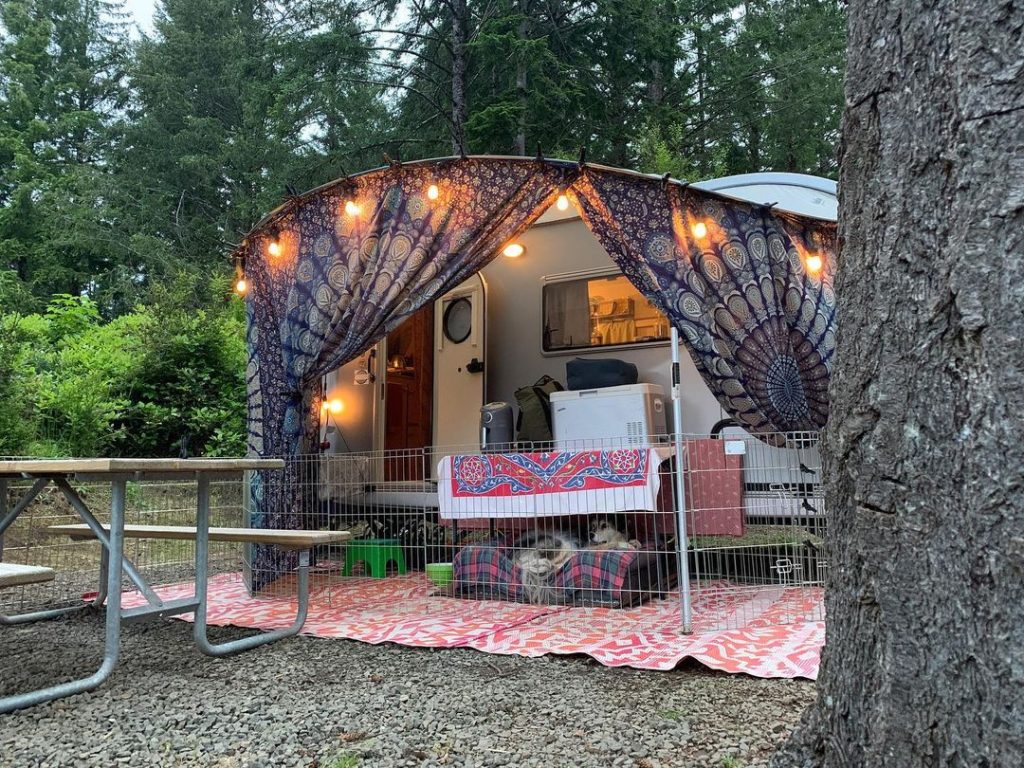It can be hard to resist the lure of the open road.
So many places to see, so many strangers-turned-friends to meet. That’s why RVers leave behind their sticks-and-bricks houses in favor of a home-on-wheels —some for a week or month and others for longer or even full-time.
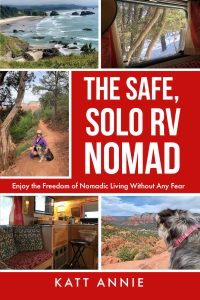
But as enjoyable and rewarding as the experience can be, it’s still important to understand that a certain amount of preparation is called for — not only on the practical side but on the psychological side as well, especially if you’re going solo.
When nuCamp first connected with Katt Annie, author of The Safe, Solo RV Nomad: Enjoy the Freedom of Nomadic Living Without Any Fear, we knew that she would be a great source to address both topics. We caught up with her while she was camping with her cousins in northern California on her way to Oregon for the summer. She took time out from her stretch on the road to share her five years’ worth of RVing experience. You can follow her journey on her website, Instagram and Twitter.
In your book, you talk about staying mentally and emotionally healthy while on the road. Do you think that is something that newbies don’t think about when they are envisioning the nomad life?
You are right. Newbies don’t think about emotional and mental health on the road. The truth is, we don’t think about a lot of the issues until we are faced with them. The question is: Do we quit? Or do we solve our problems? I got distraught several times in the first year, being overwhelmed and flustered. Thank goodness I kept going and figured out the best rhythm for me. Now, I’m so solid and peaceful.
Did you think about it before you hit the road?
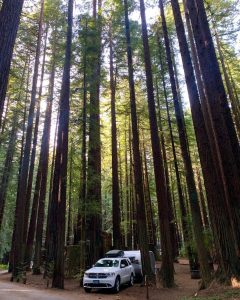
I worried that I would become a recluse in my trailer when I got out on the road. I tended to be reserved and standoffish. I’m a classic introvert. But the opposite happened. The people I meet and speak with in campgrounds every day of my life have actually caused a personality change in me. I’m now much more outgoing and comfortable in social settings. I didn’t expect that.
So much of the nomad life has to be experienced. There’s no way to predict everything in advance. We have to just go and see what happens.
How do you stay psychologically balanced when you are on your own for days at a time?
I am a member of some support groups, and we have Zoom meetings. That keeps me connected. I also learned to meditate 20 years ago. That helps. And I write in my journal. One major aspect is walking my dog. I don’t think I could do this lifestyle without my dog Cannoli, a 12-year-old Husky/Australian Shepherd mix, for companionship. Taking care of another being is very grounding. We take our morning walk in the campground, checking out other rigs, and seeing who arrived and who left.
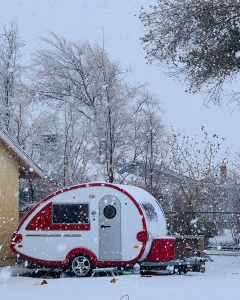
I do small talk when I come across fellow campers. I admire their rigs. “Great set-up” is the ultimate compliment. In the afternoon, after my writing work is done, we drive to the nearest town so my dog can get petted and I can be social. That has become very important to my mental health. I can’t stay at the campground all the time.
And that’s another reason I need to follow good weather. My environment has to be conducive to walking. I can’t walk in a torrential downpour (Oregon in winter), in three feet of snow (Maine in winter), or in 110-degree temperatures (Arizona in summer). The walking that keeps me social and well-balanced requires pleasant weather.
What about physical safety—something that many women especially are concerned about. What are your top three tips for women who are embarking on the nomad life?
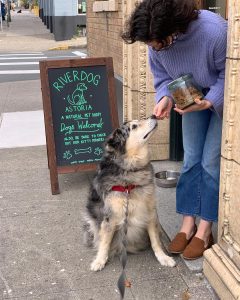
The number one piece of advice is to trust your gut. If you feel like something is wrong, leave. If you feel weird about a person, walk the other way. I’ve learned how to be friendly but not engage with people until I get to know them.
The second piece of advice is to camp in campgrounds with good management, ideally with a gate and a code. There is nobody in my Thousand Trails campgrounds that shouldn’t be there. That makes me very safe.
The third piece of advice is to travel with a dog that looks like a wolf! That works for me. I also walk with a defensive walking stick to fend off animals or humans that are threatening. I’ve never used it for that purpose, but it gives me peace. I carry a whistle, pepper spray, and a small air horn. I’ve never used any of them because I’ve never needed to. But I’m ready in case something happens.
Finally, it’s very safe out here in the world for women. I was terrified to travel by myself the first time I drove cross country. When I got out there, I realized how safe I felt. I could not have known that unless I did it.
Recent Articles
